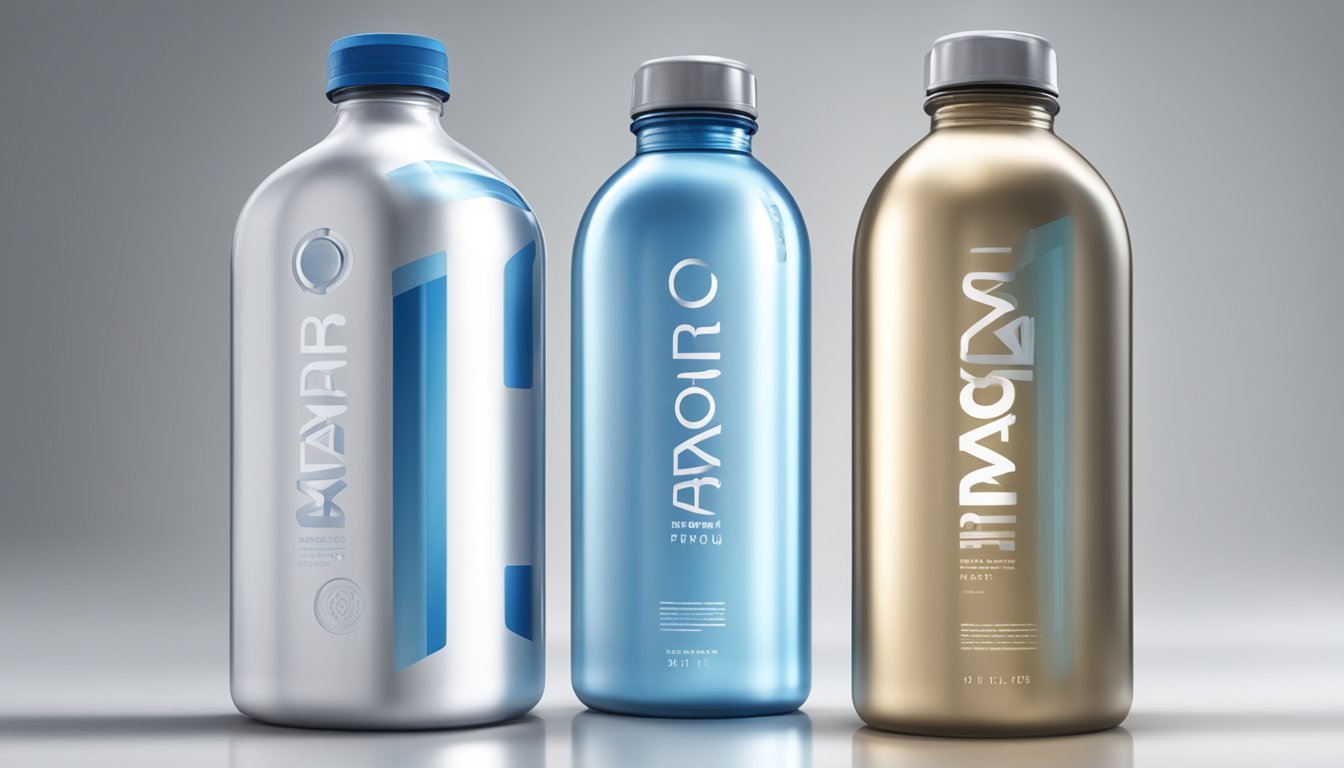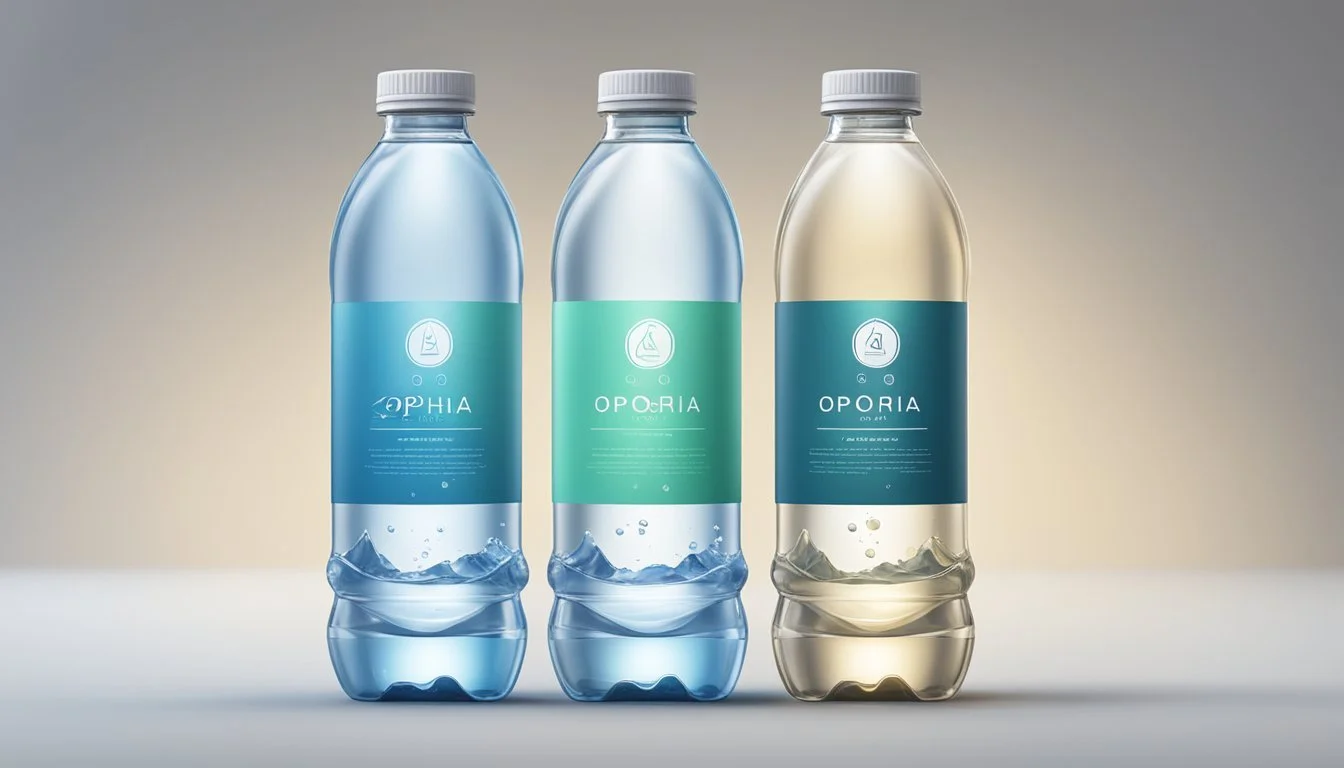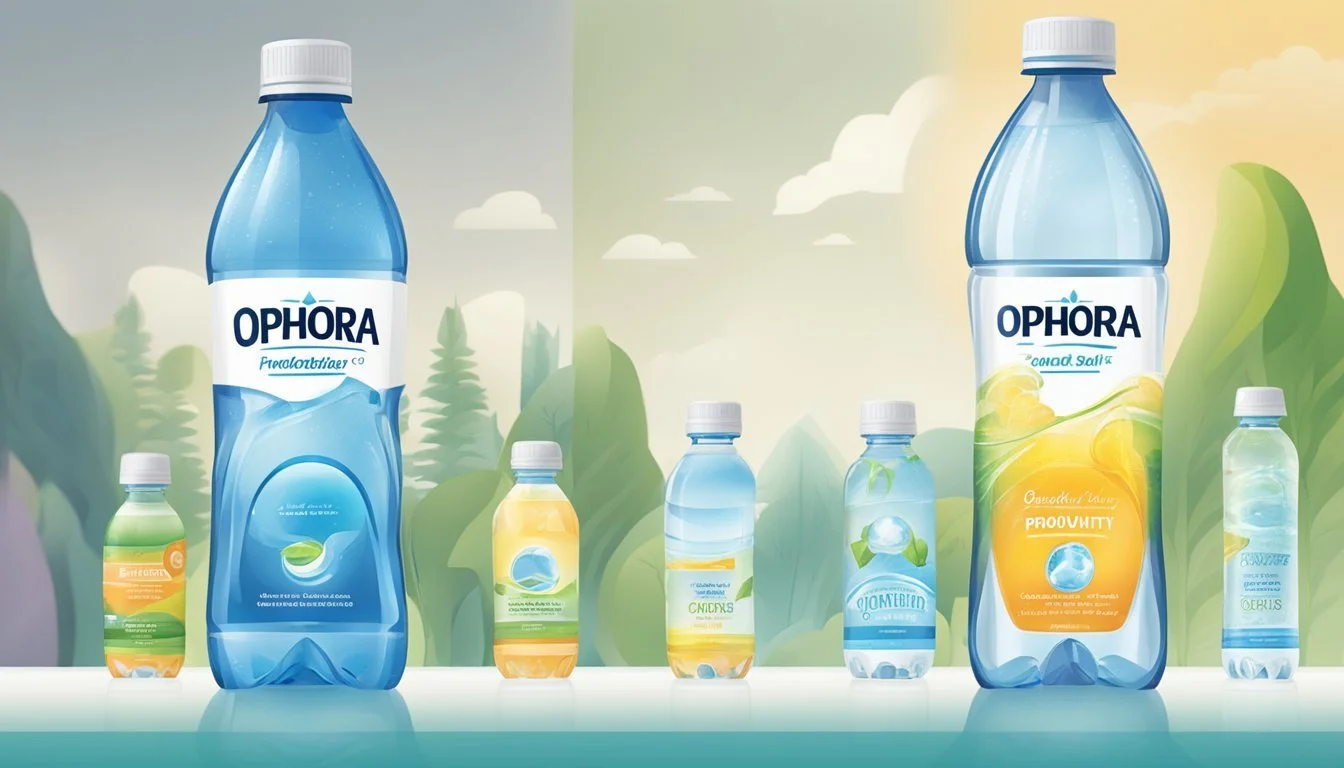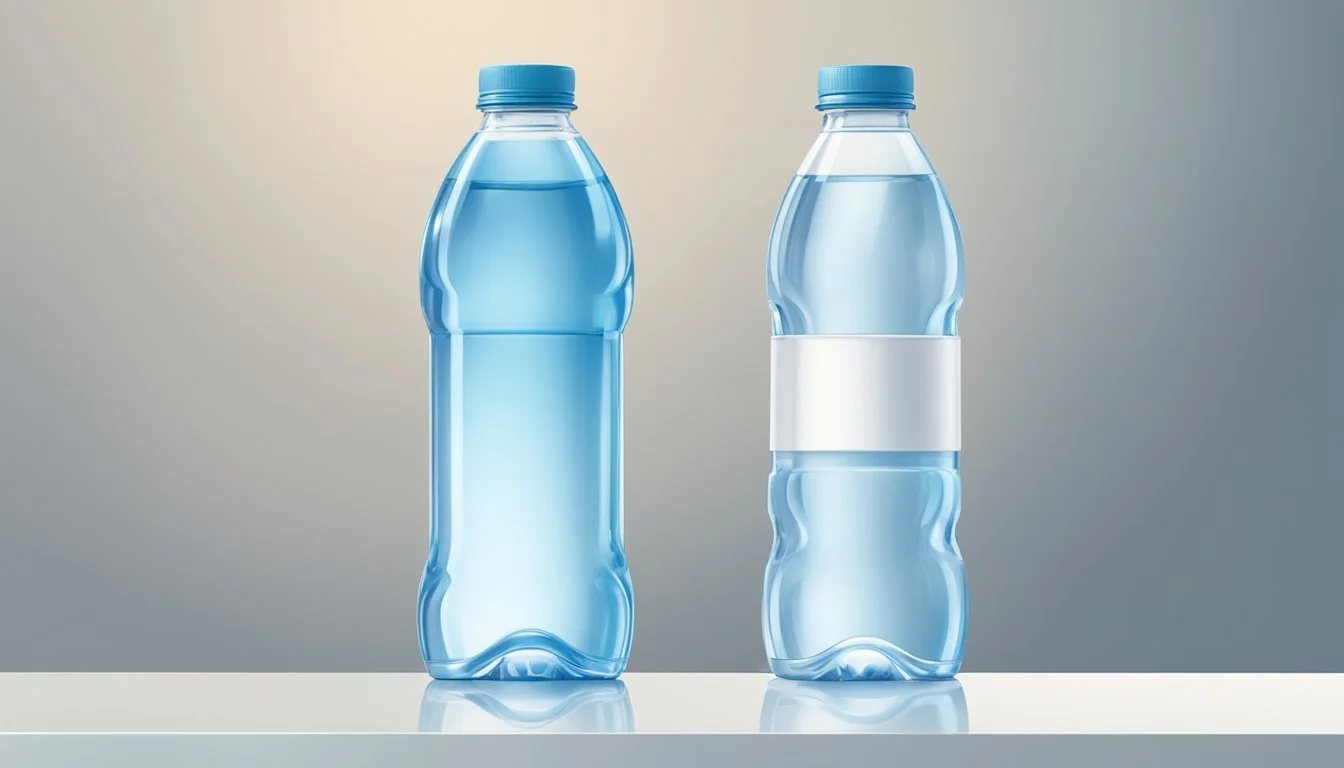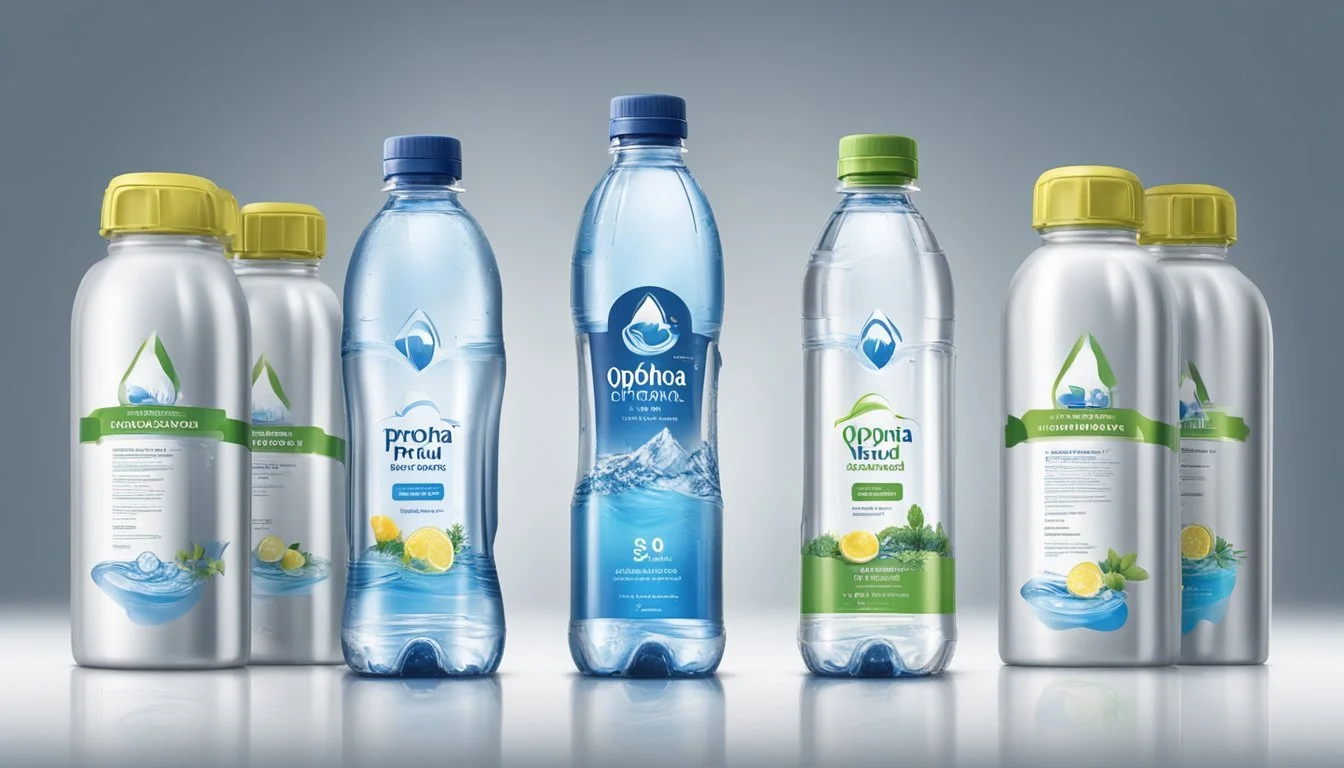Ophora vs. Proud Source
Which Bottled Water is Better? A Comparative Analysis
Choosing the best bottled water can be a daunting task, given the numerous options available. This article focuses on comparing two popular brands: Ophora and Proud Source. Ophora stands out due to its advanced purification methods and oxygenated formula, aimed at offering superior hydration and health benefits.
Proud Source, on the other hand, markets itself as a sustainable option, boasting eco-friendly packaging and sourcing from natural springs. While some users appreciate its clean and crisp taste, concerns have been raised about an "unfortunate manufactured taste" reminiscent of wet paper, as noted in reviews. Despite these mixed reviews, its commitment to the environment secures a dedicated consumer base.
For those prioritizing water quality and potential health benefits, Ophora may be the better choice. If sustainability and environmental considerations are more important, Proud Source edges out as the preferable option.
Understanding Bottled Water
This section explores different types of bottled water, their sources, and important health considerations. Insights into spring water and purified water highlight the key aspects that differentiate them.
Classification of Bottled Water
Bottled water comes in various types, each defined by its source and treatment process. Spring water, sourced from natural springs, retains its mineral content. Mineral water contains specific minerals that occur naturally. Purified water undergoes extensive treatment processes, such as reverse osmosis or distillation, to remove impurities and may have minerals added back for taste.
There are also artesian water and well water, sourced from wells that tap into underground aquifers. The classification helps consumers understand what they are drinking and choose based on their preferences and needs.
Natural Spring Water Vs. Purified Water
Natural spring water is collected from underground springs and is bottled at the source. This water often contains beneficial minerals like calcium and magnesium, which can enhance its flavor and potential health benefits. Brands like Proud Source highlight their spring water's clean, natural quality.
Purified water, such as Dasani, is treated to remove contaminants, ensuring safety and purity. This type often lacks the natural minerals found in spring water but can have minerals added for taste. Consumers might prefer purified water for its consistency and lack of natural impurities.
Health Considerations in Bottled Water
Hydration is crucial for maintaining health, and bottled water can be a convenient way to ensure adequate fluid intake. The mineral content in spring water can support health by providing essential nutrients not found in other water types.
Purified water is free from contaminants, which is important in areas where tap water quality may be poor. However, it’s important to consider the environmental impact of plastic bottles and opt for brands using sustainable packaging where possible. Some consumers prefer natural spring water for its perceived purity and fewer chemicals used in the purification process.
Analyzing Water Quality and Source
Understanding the quality and origin of bottled water is essential for making an informed choice. Comparing Ophora and Proud Source involves looking at their purity levels, origins, and mineral content.
Ophora and the Quest for Purity
Ophora prides itself on delivering some of the purest water available. The water undergoes extensive filtration processes, including advanced oxygenation and micro-cluster technology.
The source of Ophora water is a naturally protected aquifer, which ensures minimal contamination. Ophora's innovative purification methods result in a high pH level and low Total Dissolved Solids (TDS), which indicates higher purity.
The emphasis on purity makes Ophora a choice for those prioritizing health and wellness.
Proud Source's Rocky Mountain Origins
Proud Source sources its water from the Rocky Mountains, tapping into an ancient and pristine aquifer. This natural filtration through layers of rock provides natural minerals and a balanced taste.
The mineral content in Proud Source water includes silica, which is beneficial for skin, hair, and nails. Their water undergoes minimal processing to maintain its natural composition.
This process results in a naturally high pH, making it slightly alkaline and suitable for hydration and overall well-being.
Comparative Analysis of Water Purity
When comparing Ophora and Proud Source, both brands emphasize high purity and natural sourcing. Ophora uses extensive filtration and oxygenation for enhanced purity, whereas Proud Source relies on natural filtration through the Rocky Mountains.
Mineral content in Proud Source includes beneficial elements like silica, while Ophora focuses on low TDS. Both have high pH levels, highlighting their alkalinity.
The choice between them depends on personal preference for either advanced purification or natural mineral intake coupled with natural filtration. Both provide high-quality hydration with distinct advantages.
Environmental Impact of Bottling Processes
Both Ophora and Proud Source claim to prioritize sustainability in their bottling processes. This section examines the specific environmental impacts of their practices, including their efforts in sustainability, the materials they use for their bottles, and the carbon footprint associated with transporting their water.
Sustainability Efforts by Ophora and Proud Source
Ophora has implemented various sustainability initiatives such as using renewable energy sources in their bottling plants. They also focus on reducing water waste during the purification process.
Proud Source highlights its use of 100% recyclable aluminum bottles. Aluminum is known for its higher recyclability compared to plastic, significantly reducing the long-term environmental footprint. The company also invests in local watershed conservation projects to replenish sources.
Both brands emphasize reducing single-use plastics and supporting environmental restoration projects, illustrating their commitment to minimizing their ecological footprint.
Plastic vs. Glass: Bottle Materials Matter
Ophora predominantly uses plastic bottles, which contribute to plastic waste if not recycled properly. Plastic production also consumes significant fossil fuels and releases greenhouse gases.
Proud Source, on the other hand, uses glass bottles, which are more environmentally friendly. Glass can be reused and recycled endlessly without compromising quality. However, glass is heavier, leading to higher transportation costs and emissions.
The choice of materials directly impacts the environment, with glass generally favored for its recyclability and reduced long-term waste compared to plastic.
The Carbon Footprint of Water Transportation
Transporting bottled water contributes to carbon emissions. Ophora's plastic bottles are lighter, reducing transportation fuel consumption. However, plastic’s lifecycle, from production to disposal, still poses significant environmental challenges.
Proud Source's glass bottles, while heavier and requiring more energy to transport, promote a more sustainable lifecycle through recyclability and reuse. The company uses regional bottling and distribution to minimize transportation distances and emissions.
Efficient logistics and transportation strategies are vital for reducing the carbon footprint associated with delivering bottled water to consumers.
Packaging and Accessibility
The packaging options of Ophora and Proud Source bottled water highlight differences in their design and accessibility in retail environments. Specifics such as elegance, convenience in stores, and cost-value analysis illustrate these distinctions.
Elegance and Design
Ophora's bottles typically feature sleek, modern designs, often using glass as the primary material. This aligns with a premium aesthetic and offers an upscale impression to consumers.
Proud Source opts for aluminum bottles, emphasizing sustainability and a sophisticated look. These bottles are more eco-friendly compared to regular plastic bottles, appealing to environmentally-conscious buyers. Both brands prioritize a polished appearance but differ in material choice, influencing the consumer's perception and experience.
Convenience in Retail Stores
Ophora's distribution focuses on specialty stores and high-end supermarkets, which can limit accessibility for some consumers. Glass bottles, while elegant, are less common in everyday grocery stores due to their fragility and higher costs.
Proud Source, using aluminum bottles, has managed to expand its presence in both high-end and regular grocery stores. Aluminum is sturdy, lightweight, and easy to stock, enhancing availability for a wider audience. This practical approach to packaging makes Proud Source more accessible in various retail settings.
Comparing Costs and Value
Ophora's use of glass means higher production costs, translating to a higher retail price. Though pricier, this cost is justified for those seeking a premium product with distinct health benefits. It's often positioned as a luxury item rather than a daily purchase.
Proud Source's aluminum bottles are less costly than glass but more expensive than plastic. The price reflects the brand's commitment to sustainability without compromising on design. While still positioned as a premium product, it offers a balance of quality and environmental responsibility. This makes it a preferred choice for consumers who value both eco-friendliness and cost-effectiveness.
In summary, each brand's packaging strategy impacts its market reach and consumer appeal. Ophora's luxurious, albeit less accessible, approach contrasts with Proud Source's environmentally-minded, more widely available packaging.
Health Implications of Bottled Water Brands
When choosing bottled water, consumers prioritize their health, focusing on the essential minerals for hydration and the pH balance of the water. Both factors influence overall well-being and hydration quality.
Essential Minerals for Hydration
Essential minerals like calcium, magnesium, and potassium play a critical role in hydration. These minerals help maintain fluid balance, nerve function, and muscle health. Ophora advertises their water for its enhanced oxygen content and mineral composition. This makes it potentially beneficial for athletes and those needing rapid hydration.
Proud Source emphasizes its natural mineral content, sourced from spring water. This brand highlights balanced levels of essential minerals, which can support daily hydration needs. It's important to verify the mineral content from product labels or official sources to compare these brands effectively.
Comparing pH Levels and Health Benefits
The pH level of bottled water can influence its health benefits. Alkaline water, with a pH above 7, is marketed for its potential to neutralize acid in the body, which may aid in reducing acid reflux and improving overall hydration.
Ophora features a higher pH level, which might be attractive to those looking for alkaline water's reputed benefits.
Proud Source generally offers a neutral to slightly alkaline pH, making it suitable for those looking for naturally balanced water without extreme pH levels. Checking the pH levels on the bottle allows consumers to choose a brand that aligns with their health preferences.
Consumers should focus on choosing bottled water that aligns with their specific health needs and preferences for mineral content and pH levels.
Consumer Experience
Consumers of Ophora and Proud Source bottled water place great importance on taste and brand perception. Their experiences help shape the popularity and reputation of each brand in the competitive bottled water market.
Taste Profiles of Ophora and Proud Source
Ophora water is known for its ultra-purified quality and refreshing taste. Many consumers appreciate its crisp, clean flavor, free of any metallic taste. Some have noted a slight mineral aftertaste, but it is generally pleasant and not off-putting. The water undergoes extensive purification, which likely contributes to its pure profile.
Proud Source offers spring water with a natural and mildly sweet taste. Packaged with sustainability in mind, its flavor is often described as smooth and soft on the palate. Unlike Ophora, Proud Source has a subtle mineral trace, but it is usually considered enjoyable and adds to its unique profile.
The Role of Water Sommeliers in Brand Image
Water sommeliers have a significant impact on how brands like Ophora and Proud Source are perceived by consumers. These experts often evaluate water based on specific attributes such as clarity, mouthfeel, and aftertaste.
Ophora is frequently endorsed by sommeliers for its high level of purification, positioning it as a premium product. Their validation helps enhance the brand's image, making it more attractive to discerning customers.
Proud Source, endorsed for its sustainability efforts and natural mineral content, also gains credibility through sommelier recommendations. These experts appreciate the water's balance and natural taste, which resonates well with health-conscious and environmentally aware consumers.
Alternatives and Competitors in the Market
Many bottled water brands offer distinct qualities aimed at various segments of consumers. Key competitors provide varied choices in taste, mineral content, and packaging, each vying for a spot in the consumers’ preference.
How Ophora and Proud Source Stand Out
Ophora and Proud Source distinguish themselves through their unique sourcing and purification processes. Ophora emphasizes its oxygen-rich water, claiming enhanced hydration and health benefits because of its advanced oxygenation and filtration processes. Proud Source, sourced from Idaho and Georgia, highlights its sustainable packaging with aluminum bottles, which are both lightweight and recyclable.
Both brands cater to health-conscious and environmentally-aware consumers. Ophora's focus on oxygen and purity resonates with those looking for possible wellness benefits. Proud Source's eco-friendly approach appeals to those prioritizing sustainability in their purchasing decisions.
The Broader Landscape of Bottled Water Brands
The bottled water market is diverse, featuring both globally recognized brands and niche products. Evian and Fiji are noted for their premium positioning, with Evian sourced from the French Alps and Fiji from an artesian aquifer in Viti Levu.
Dasani and Aquafina, both backed by major beverage corporations, offer purified water through meticulous processes, ensuring widespread availability and consistency. Smartwater differentiates itself with added electrolytes for a clean, crisp taste. Voss promotes its artesian quality and sleek, distinctive glass bottle packaging.
Additionally, La Croix, typically known for sparkling water, provides an alternative to traditional still water through its health-conscious, flavored offerings. Other smaller brands also add variety to the market, catering to different tastes, health claims, and environmental concerns.
Regulatory Standards and Certifications
This section reviews the regulatory standards and certifications of Ophora and Proud Source bottled waters. Focused primarily on EPA guidelines and distinct certifications, it provides insights into compliance and quality assurance measures.
EPA Guidelines and Compliance
Both Ophora and Proud Source must comply with established EPA guidelines. The EPA monitors contaminants and sets max allowable levels for various substances in drinking water to ensure safety.
Proud Source adheres to these standards, ensuring consumer safety by following FDA-approved quality measures. The FDA oversees bottled water under the Federal Food, Drug, and Cosmetic Act. These regulations are often more stringent than EPA rules, ensuring robust compliance.
Ophora, known for its oxygen-rich water, also adheres meticulously to these standards. Recognition by state agencies like California underscores its commitment. Both brands implement extensive testing protocols to remain compliant.
Comparing Certifications of Ophora and Proud Source
Proud Source holds several certifications that vouch for its sustainability and water quality. They adhere to the NSF regulations for bottled water and have certifications like IBWA's Code of Practice, setting a high standard for member compliance.
Ophora also prides itself on various certifications like the NSF and other local health department endorsements. Their water undergoes regular testing, ensuring contaminants stay well below EPA and FDA designated levels. Additional certifications like those from California’s stringent health standards further enhance credibility.
Proud Source usually emphasizes eco-friendly practices, while Ophora focuses on water quality enhancements. Both brands' certifications highlight their individual commitment to providing safe, high-quality drinking water.
Final Thoughts
When comparing Ophora and Proud Source, several factors come into play.
Ophora is known for its advanced oxygenation and alkaline properties. This water is marketed for its potential health benefits and unique purification process. Consumers who prioritize health claims may find Ophora appealing due to its innovative approach to bottled water.
Proud Source, on the other hand, boasts a pH of 8.1 and a Total Dissolved Solids (TDS) reading of 132 ppm, which is ideal for mountain spring water. This brand is favored by those looking for naturally sourced alkaline water with a balanced mineral content.
Both brands have their own strengths. Ophora offers some of the most advanced technology in drinking water. Proud Source provides a natural and mineral-rich option.
Consumer choice between the two will largely depend on personal preferences regarding taste, mineral content, and any perceived health benefits.
In terms of availability, Proud Source is easier to find compared to Ophora. This factor could influence purchasing decisions as well.
Quality comparison shows that both brands uphold high standards in sourcing and purification.
Feature Ophora Proud Source pH Level Alkaline 8.1 TDS Reading High purity 132 ppm Key Selling Points Advanced oxygenation, health Natural spring source, minerals Availability Specialty stores, online More widely available
For consumers seeking a high-quality bottled water, both Ophora and Proud Source offer compelling features tailored to different preferences.
More About Ophora
Mountain Valley Spring Water vs Ophora: Which Bottled Water is Better?
Ophora vs Kirkland Signature: Which Bottled Water is Better?
Richard's Rainwater vs Ophora: Which Bottled Water is Better?
Whole Foods Italian Still Mineral water vs Ophora: Which Bottled Water is Better?
More About Proud Source
Aqua Carpatica vs Proud Source: Which Bottled Water is Better?
Cascade Mountain vs Proud Source: Which Bottled Water is Better?
Core Hydration vs Proud Source: Which Bottled Water is Better?
Crystal Geyser vs Proud Source: Which Bottled Water is Better?
Crystal Lake vs Proud Source: Which Bottled Water is Better?
Hawaii Volcanic vs Proud Source: Which Bottled Water is Better?
Hawaiian Springs vs Proud Source: Which Bottled Water is Better?
Ice Mountain vs Proud Source: Which Bottled Water is Better?
Icelandic Glacial vs Proud Source: Which Bottled Water is Better?
Kirkland Signature vs Proud Source: Which Bottled Water is Better?
Liquid Death vs Proud Source: Which Bottled Water is Better?
Mountain Valley Spring Water vs Proud Source: Which Bottled Water is Better?
Nestle Pure Life vs Proud Source: Which Bottled Water is Better?
Poland Spring vs Proud Source: Which Bottled Water is Better?
Proud Source vs Essence pH10: Which Bottled Water is Better?
Purely Sedona vs Proud Source: Which Bottled Water is Better?
Richard's Rainwater vs Proud Source: Which Bottled Water is Better?
San Pellegrino vs Proud Source: Which Bottled Water is Better?
Simple Truth vs Proud Source: Which Bottled Water is Better?
Solan de Cabras vs Proud Source: Which Bottled Water is Better?
Talking Rain AQA vs Proud Source: Which Bottled Water is Better?
Whole Foods 365 vs Proud Source: Which Bottled Water is Better?
Whole Foods Italian Still Mineral water vs Proud Source: Which Bottled Water is Better?

